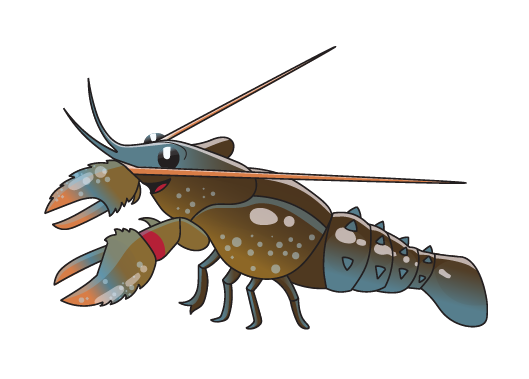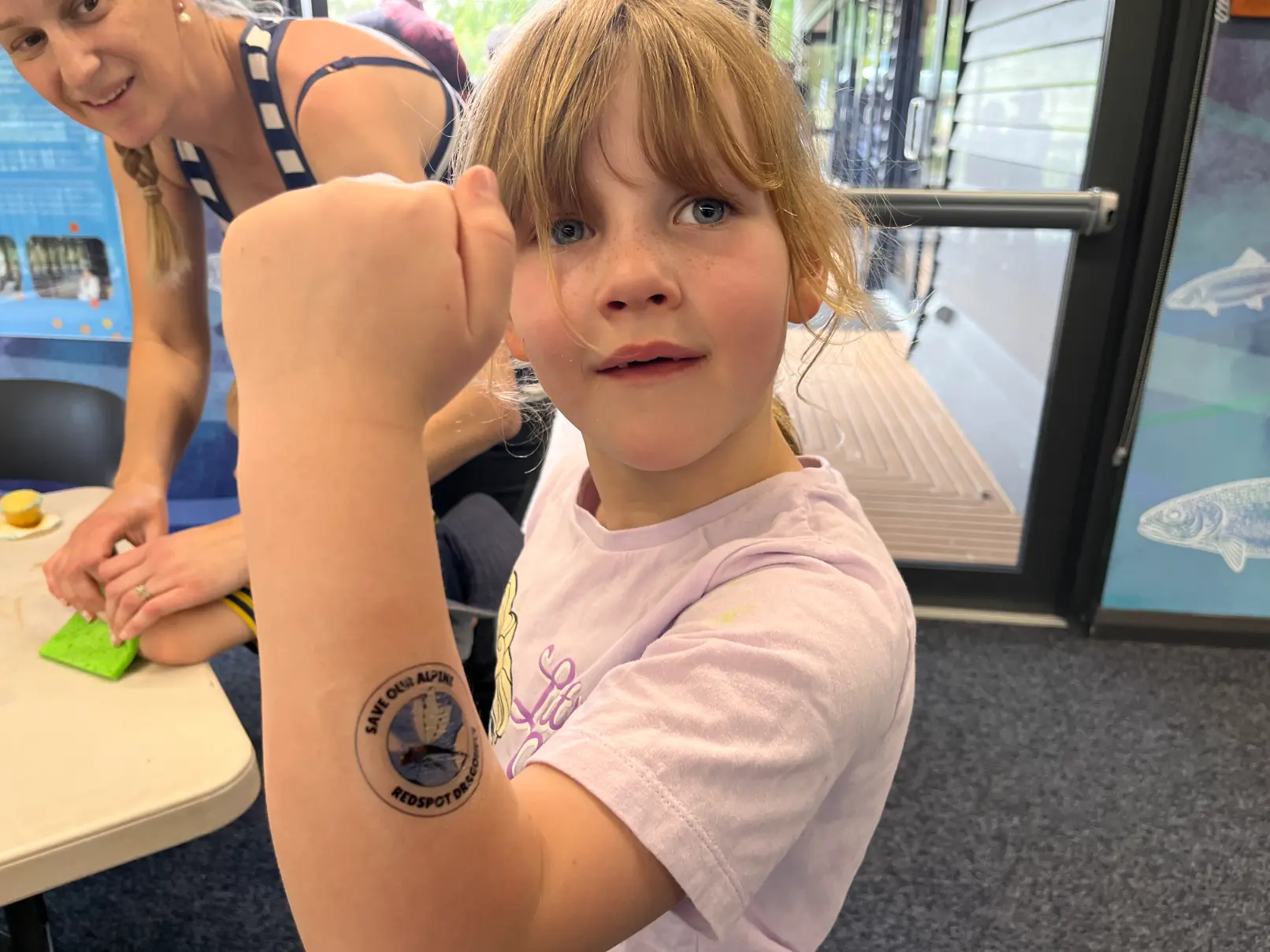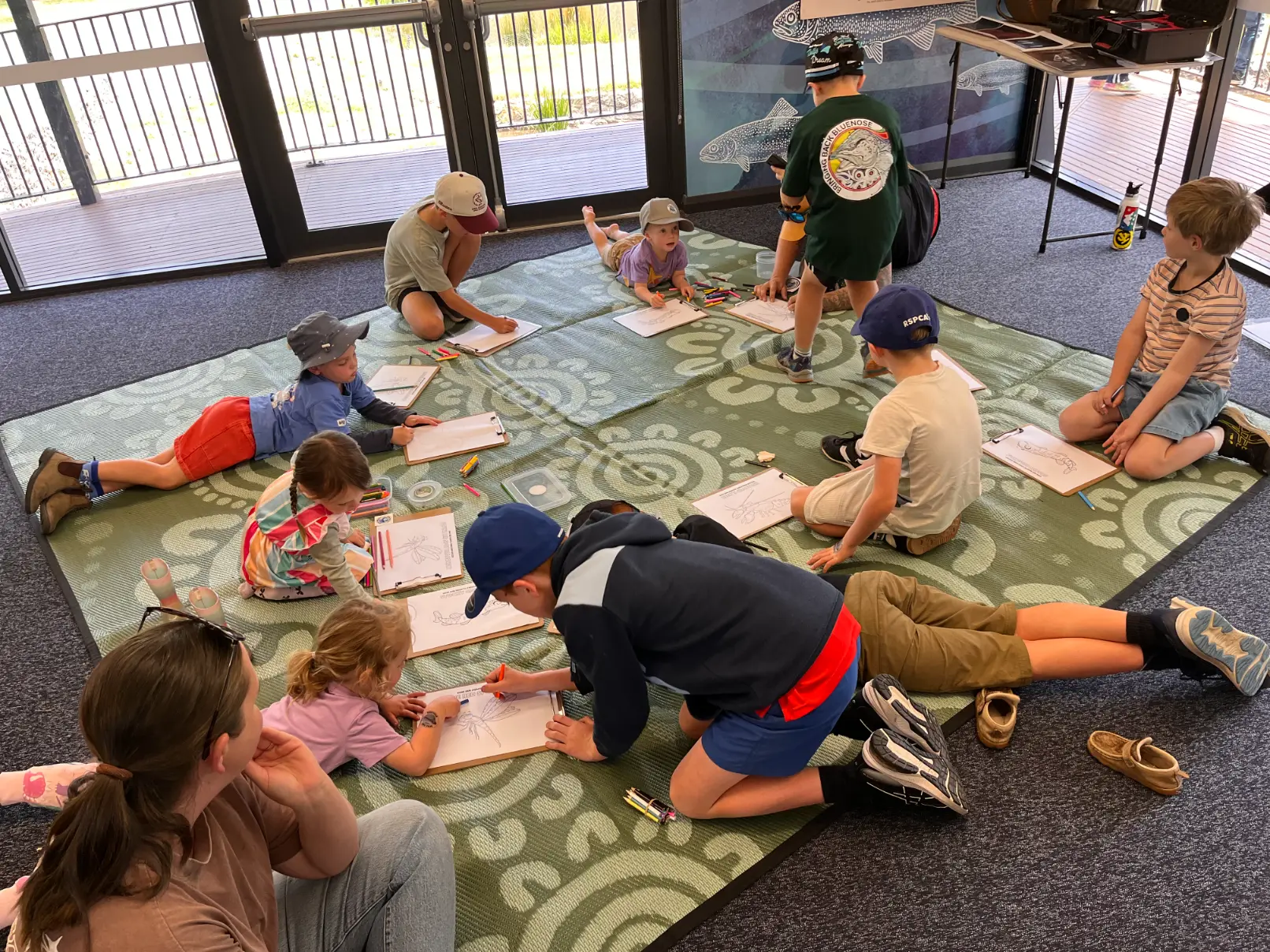Student Competition:
Splashback! Art for Aquatic Action
Hello fishy friends!
In late 2025, the Splashback! Art for Aquatic Action competition was held to engage students across the country to explore and celebrate NSW's unique aquatic fauna that are currently under threat of extinction.
More than 100 young artists from across the country explored the world of NSW’s threatened aquatic species, learning their stories and bringing them to life through art. From colourful paintings to clay sculptures and drawings, students brought attention to the importance of protecting their habitats and taking actions to help recover them.
On Saturday 15th November, the Gaden Trout Hatchery in Jindabyne came alive with colour, families, learning, and celebration as 140 people came together to see all the competition entries, which you can see further below on this page.
The art competition may have wrapped up but the fight to save these species continues on!
Why was this important?
Of the 300 animal species which are threatened and at risk of going extinct in NSW, nearly 20% (or 1 in 5) live under the water for either all or part of their lifecycle.
Not many people are aware of this. It’s a case of ‘out of sight’ so ‘out of mind’.
Many of our aquatic threatened species are small and cryptic – and not all fish! Meet our inspiration for the art competition below:

Stocky Galaxias
Stocky Galaxias is a small freshwater fish endemic to Kosciuszko National Park. This critically endangered species is currently known to only occur in the headwaters of two cold, fast-flowing alpine streams above 1,400 metres. About 8cm long, Stocky has a stout body and mottled brown markings that provides camouflage among the gravel and cobble streambeds they call home.
Its primary threats include climate change, introduced species and rising water temperatures. Conservation efforts are focused on protecting existing habitat, captive breeding, locating new sites for wild reintroductions and raising awareness of this tiny fish’s plight.

Alpine Redspot Dragonfly
Did you know that the Alpine Redspot Dragonfly, recognisable by its vivid red abdominal markings and clear wings, is also a threatened aquatic species because its egg and nymph stages rely on the splash zone of waterfalls in the mountains? Larvae develop over several years underwater, making them highly sensitive to disturbance and changes in stream flow.
This dragonfly is an important bioindicator of alpine ecosystem health yet sadly only 7 of these fascinating creatures have been recorded in NSW since the 1950s.

Riek's Crayfish
As the highest altitude species of crayfish in Australia, Riek’s Crayfish only live in freshwater alpine wetlands in Kosciuszko National Park which freeze over in winter. Typically found under rocks and plants in deep burrows along stream margins, it plays a vital role in ecosystem function by recycling organic matter.
This tough crayfish is the definition of a survivor; as with most freshwater crayfish species, the female carries her eggs then her newly-hatched young under her tail for about seven months. Sadly, as a slow-growing species which produces few offspring, this crayfish is particularly vulnerable to population declines caused by habitat declines and competition with the Common Yabby.
The Splashback! Exhibition Wall
These artworks were created for the Splashback! Art for Aquatic Action competition, where students explored one of NSW’s threatened aquatic species and learned about its habitat, challenges and recovery efforts. They were asked to translate what they discovered into an artwork and a short written piece explaining the species and why it caught their interest.
What you see here is a wide range of interpretations — from bold drawings to detailed paintings and inventive 3D pieces — each reflecting the students’ research and the way they connected with their chosen species.
For many students, this was the first time they’d heard of species like Stocky Galaxias, Riek’s Crayfish or the Alpine Redspot Dragonfly. Seeing those species show up in so many different ways on this wall shows just how effective simple awareness can be in bringing these native species into focus.
Competition Winners
- Best Individual Infants entry (K-Y2) from Berridale Public School – Leyla (Year 2) and Angus (Year 1) (we couldn’t decide!)
- Best Individual Primary entry from Berridale Public School (Y3-Y6) – Rhea B (Year 4)
- Best Individual entry from Aranda Primary School – Juniper Smith
- Best collaborative artwork (2+ students) from Aranda Primary School - Evie and Jazzy
- Best collaborative artwork (2+ students) overall – Toby and Lucy Helman
- Best online entry – Alice Hayes
- Best Individual High School entry – Harriet McLean
- School with the most entries – Berridale Public School

Winning entries in the individual and collaborative categories were awarded “Stocky Stockings” packed full of fishy flavoured goodies such as hats, water bottle holders and lures.
Family Fun Splashback Day at Gaden Trout Hatchery

Our Splashback! Family Fun Day on the Thredbo River was an incredible celebration of art, community and our lesser-known aquatic species. With more than 100 art entries and around 140 people joining us, the day brought together families, teachers, students and locals for a relaxed and creative riverside event.
Protected by the Stocky gods themselves, the storms cleared on both sides and we were gifted a perfect riverside day — picnic blankets spread out, kids exploring the riverbank, and the excitement of seeing all the artworks finally displayed together. Stocky Galaxias, Riek’s Crayfish and the Alpine Redspot Dragonfly showed up on biscuits, arms, colouring sheets and paintings, and it was great to see so many people engaging with their stories.
Held at the Gaden Trout Hatchery, the exhibition filled the visitors’ centre with colour and curiosity, with families travelling from across the region to be part of the day. The event included:
- the full exhibition of all entries
- a free family lunch
- hatchery tours and threatened-species talks
- kids’ craft and temporary tattoos
- giveaways throughout the day
- winners announced live
It was a fantastic way to bring the competition to life and to share these artworks with the wider community. Thank you to everyone who joined us and helped make the day such a memorable way to highlight and celebrate these important native species.


Additional Resources
Although the competition has finished, the work to protect these native species continues. If you’d like to keep exploring Stocky Galaxias and other threatened aquatic animals in your classroom or at home, you’re welcome to use the resources below. Teachers and families can print colouring sheets, learning activities and background information to help students stay engaged with these species and their stories.
Acknowledgements
This competition was run by the Australian River Restoration Centre on behalf of the NSW Department of Primary Industries & Regional Development with grant funding from the Australian Government's Saving Native Species Program. The following organisations are involved in its organisation and management:






